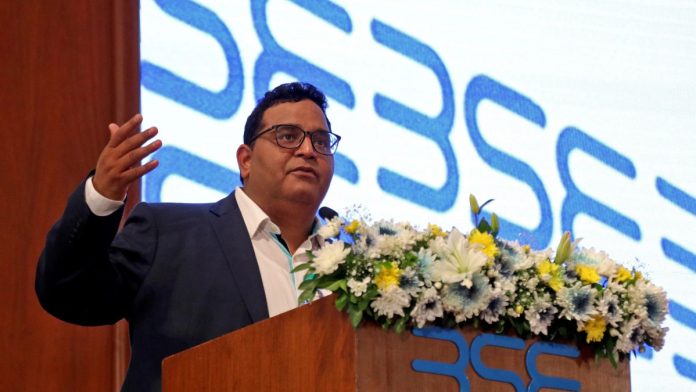New Delhi: A directive from the Reserve Bank of India (RBI) instructed Paytm to cease accepting new deposits in both its accounts and widely-used digital wallets, effective from February 29.
On Tuesday, Paytm founder and CEO Vijay Shekhar Sharma held discussions with Union Finance Minister Nirmala Sitharaman to address the current challenges confronting his fintech firm in the aftermath of regulatory restrictions imposed by the Reserve Bank of India, as per ANI reports.
The high-profile meeting occurred shortly after Vijay Shekhar Sharma and several Paytm officials engaged with the Reserve Bank of India (RBI) to address regulatory concerns. A Reuters report suggests that the central bank listened to the concerns raised by the fintech giant without providing any immediate commitments.
“Ongoing discussions are focused on addressing regulatory concerns and compliance issues, involving both the RBI and the ministry,” revealed a source to Reuters.
The Reserve Bank of India (RBI) directed Paytm to cease accepting new deposits in its accounts and widely-used digital wallets starting from February 29. Paytm has formally requested an extension for this deadline from the RBI, while also seeking clarity regarding the transfer of its license for the wallets business and FASTag from the central bank.
Paytm has dismissed reports suggesting an investigation by the Enforcement Directorate into either the company or its founder, Sharma. The company released a statement stating, “Categorically deny any investigation by the Enforcement Directorate on OCL, our associates, and/or its Founder and CEO for anti-money laundering activities. Neither the company nor its founder and CEO are being investigated by the Enforcement Directorate regarding, inter alia, money laundering.”
“We would like to set the record straight and deny any involvement in anti-money laundering activities. We have and continue to abide by Indian laws and take regulatory orders with utmost seriousness,” affirmed the company in a statement, emphasizing its commitment to compliance with Indian regulations.

